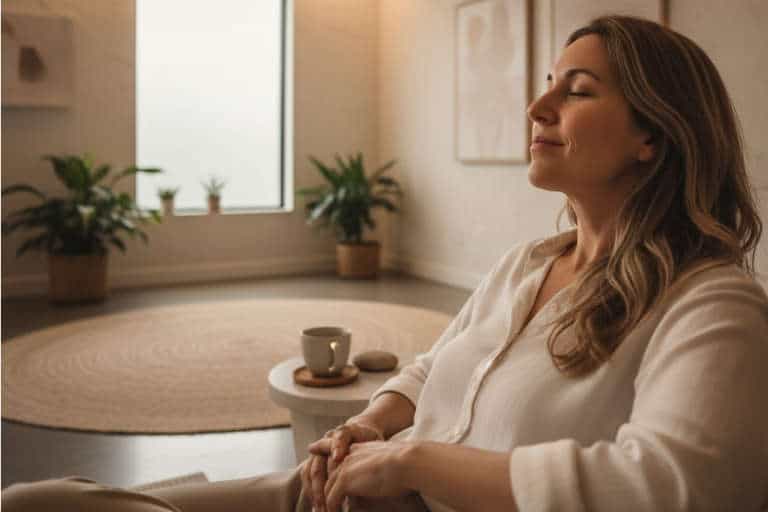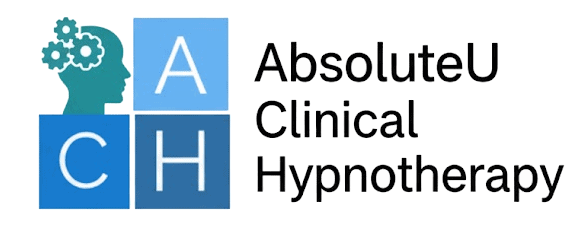Hypnotherapy for Phobias
Understanding Phobias
Phobias can affect anyone, at any age, and often appear without warning. They are not simply fears, but intense emotional and physical reactions that can take over the mind and body.
For some people, even thinking about the object or situation can trigger overwhelming feelings of panic or anxiety. Over time, this can begin to shape everyday choices, routines, and relationships, leading to avoidance and frustration.
At AbsoluteU Clinical Hypnotherapy in Horsham, I work with clients to gently retrain the mind’s automatic responses through hypnotherapy for phobias. This approach helps you understand where the fear began and teaches your subconscious mind to respond in calmer, more rational ways.

Many people are surprised by how effective hypnotherapy for phobias can be. It allows you to work with your subconscious mind in a relaxed state, helping you change emotional patterns that once felt beyond your control. As the mind learns new ways to respond, the body follows, creating lasting confidence and calm.
What Is a Phobia?
A phobia is an exaggerated fear of a specific object, situation, or experience. It can involve anything from animals and environments to medical procedures or social settings. While the conscious mind may know that the fear is disproportionate, the subconscious mind reacts as if there is real danger, triggering powerful physical sensations such as a racing heart, breathlessness, or shaking.
These responses are rooted in the body’s survival mechanism. When the brain perceives a threat, it activates the fight or flight system, even when there is no actual risk. Over time, this reaction becomes learned and reinforced, so the fear response happens automatically.
With hypnotherapy for phobias, we work directly with that automatic part of the mind. In a calm and relaxed state, the subconscious becomes more open to suggestion and change. This allows you to safely reframe how your mind perceives the trigger and begin to respond with balance and control instead of panic or avoidance.
By understanding the origins of your phobia, whether from a past event, learned behaviour, or even something you once saw or heard, you can start to release its emotional hold. Many people find that once the fear is addressed at this deeper level, the physical reactions fade too. You begin to feel lighter, calmer, and freer to live your life without constantly planning around your fear.
Why Phobias Develop
Phobias can arise for many reasons. Sometimes they start with a single frightening event. Other times, they are learned by observing someone else’s fear, such as seeing a parent react strongly to a spider or a dog. The subconscious then stores this as a warning, linking it to danger even if there is no logical reason to do so.
Modern life can also reinforce fears. The media often amplifies danger, and repeated exposure to dramatic stories or images can make certain threats feel real and immediate. Once a phobia develops, the mind becomes highly sensitised to any reminder of it, and even neutral situations can begin to feel unsafe.
The good news is that the subconscious can learn new patterns just as easily as it learned the old ones. Hypnotherapy for phobias helps replace those old fear-based responses with calmer, more realistic ones, giving you the confidence to face situations that once felt impossible.

How Hypnotherapy for Phobias Helps
Hypnosis works by helping you access the part of your mind that runs automatically. During sessions, you remain aware and in control, but deeply relaxed. In this state, your subconscious is more receptive to positive change.
Together, we can explore and reprogramme the underlying beliefs and associations that drive your fear. For example, if your subconscious has linked flying with danger, hypnotherapy for phobias can help it understand that modern air travel is safe and routine. Gradually, your body begins to stay calm where it once panicked.
Clients often notice other benefits too. As you retrain your mind to respond calmly in one area, general anxiety levels drop. You may find yourself feeling more relaxed in everyday life, sleeping better, and feeling a greater sense of control and confidence.
Common Types of Phobias
Phobias can be grouped into categories depending on what triggers the fear. Here are some examples of the most common types that people seek help for.
Environmental Phobias
These involve fears related to natural or environmental situations, such as:
- Fear of heights (Acrophobia)
- Fear of lightning (Astraphobia)
- Fear of the dark (Nyctophobia)
- Fear of fire (Pyrophobia)
Situational Phobias
These are fears linked to specific environments or activities, often involving a sense of being trapped or out of control:
- Fear of flying (Aerophobia)
- Fear of enclosed spaces such as lifts, underground areas, or crowds (Claustrophobia)
- Fear of crossing bridges or tunnels (Gephyrophobia)
Medical or Bodily Phobias
These fears can make even routine medical procedures feel terrifying and can prevent people from seeking necessary healthcare:
- Fear of needles (Trypanophobia)
- Fear of doctors (Iatrophobia)
- Fear of blood (Hemophobia)
- Fear of surgery (Tomophobia)
Social Phobias
These fears are often about being observed, judged, or humiliated by others:
- Fear of public speaking (Glossophobia)
- Fear of new situations (Neophobia)
- Fear of people or social interactions (Anthrophobia)
While the list above includes some of the most common phobias, there are hundreds of others. No matter how unusual or specific your fear feels, it can usually be traced back to a learned emotional response that can be changed through hypnotherapy for phobias.
Evidence and Research
A growing body of research supports hypnotherapy for phobias as a safe, effective way to reduce fear responses and avoidance. By working at the level of subconscious learning, hypnosis helps recalibrate the brain’s threat system so previously feared cues feel manageable and safe.

- A 2010 review in the American Journal of Clinical Hypnosis found that hypnosis is highly effective in reducing anxiety and phobic responses, helping participants reinterpret feared situations as safe and manageable.
https://doi.org/10.1080/00029157.2010.10401721 - A 2009 paper in the American Journal of Clinical Hypnosis reported that combining cognitive and behavioural methods with hypnosis enhances subconscious change, making treatment for phobias faster and longer lasting.
https://doi.org/10.1080/00029157.2009.10401692 - A neuroimaging study published in NeuroImage (2005) showed that hypnosis can alter activity in brain areas involved in fear and emotion regulation, helping to rewire automatic fear responses at a neurological level.
https://doi.org/10.1016/j.neuroimage.2005.05.002 - A 2019 clinical review confirmed that hypnosis effectively reduces anxiety when used alongside talking therapies, providing measurable improvements in calmness, confidence, and quality of life.
https://doi.org/10.1080/00029157.2019.1695970
These findings suggest that hypnotherapy for phobias offers both psychological and physiological benefits, helping individuals overcome fear, build confidence, and respond to previous triggers with greater calm and control.
What to Expect from Sessions
At AbsoluteU Clinical Hypnotherapy, every session is tailored to your individual needs. We begin by exploring the origins and triggers of your phobia and identifying how it affects your daily life. I combine hypnotherapy for phobias with elements of CBT (Cognitive Behavioural Therapy) and NLP (Neuro-Linguistic Programming) to help you build new thought patterns and coping strategies.
You will learn how to relax your mind and body, how to separate the imagined danger from reality, and how to face situations with calm confidence. Progress is often gentle but surprisingly fast. Many people begin to feel significant relief after just a few sessions.
As you start to respond differently in your thoughts, your body follows. That old rush of panic begins to fade, and what once felt impossible starts to feel manageable, then normal.
Frequently Asked Questions About Phobias
Each session begins with a calm discussion about your experiences, triggers, and the ways your phobia affects daily life. You will remain fully aware and in control throughout. During hypnosis, I guide you into a relaxed state where your subconscious becomes more open to positive change. This is where the deeper work takes place. Through tailored suggestions and imagery, we retrain the mind to respond differently to the feared situation. The process of hypnotherapy for phobias helps replace panic and avoidance with a sense of calm understanding and control.
Phobias are learned emotional responses that the subconscious repeats automatically. Hypnotherapy for phobias works by accessing that automatic part of the mind and gently introducing new patterns of thought and feeling. When the subconscious learns that a situation or object is safe, the body’s anxiety response begins to fade. Over time, you can face situations that once caused fear with greater ease. Many clients describe feeling more balanced and confident, not just in one area, but across their lives as a result of overcoming fear through hypnotherapy.
No, you will never be forced to face your fear directly. The aim of hypnotherapy for phobias is to create internal change first, so that when you do encounter the trigger in real life, your reaction is naturally calmer and more manageable. By changing the emotional association within the subconscious, the fear response softens. You will be supported at every stage and guided at a pace that feels right for you.
Every person and every phobia is different. Some people experience improvement within just a few sessions, while others benefit from a slightly longer process. Typically, between three and six sessions of hypnotherapy for phobias is enough to make a significant difference. I often integrate elements of CBT and NLP to strengthen the conscious understanding alongside subconscious change, ensuring the results last.
Yes, it can. Phobias often trigger powerful physical sensations such as dizziness, sweating, rapid heartbeat, or stomach upset. These are automatic body responses to the mind’s belief that danger is present. By calming the subconscious and retraining your internal responses, hypnotherapy helps the body return to balance. As you learn to manage anxiety and fear differently, those physical sensations reduce, leaving you with a greater sense of safety, confidence, and control in your everyday life.
Taking the Next Step
Living with a phobia can be exhausting, but you do not have to let fear control your life. Hypnotherapy for phobias offers a safe and effective way to retrain your subconscious mind, release old patterns, and build new ones that allow you to feel calm, capable, and in control again.
Whether your fear is mild or has been affecting you for years, change is possible. Every client’s journey is unique, but the goal is always the same: freedom from fear and the confidence to live fully.
If you are ready to take that first step, contact me at AbsoluteU Clinical Hypnotherapy in Horsham to arrange an initial session or learn more about how hypnotherapy for phobias can help you overcome your fear.

